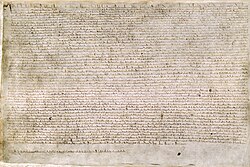Usury
Usury is lending money for interest. Nowadays it usually means lending at a high, often extortionate rate of interest on a loan.
Usury is illegal in many parts of the world. In muslim countries charging any interest at all is strictly illegal.
Some people argue that this is against the Old Testament, especially Exodus[1] and Deuteronomy[2] which states that those who lend to someone in need will be blessed, but the point about usury is the high levels of interest, not the act of lending in itself.
Aristotle also condemned usury as "contrary to nature" in his book on Politics, because it increases by itself and makes money without labour.[3]
Usury Media
Of Usury, from Brant's Stultifera Navis (Ship of Fools), 1494; woodcut attributed to Albrecht Dürer
St. Bernardino of Siena, treatise on contracts and usury (Tractatus de contractis et usuris), manuscript, 15th century
Magna Carta commands, "If any one has taken anything, whether much or little, by way of loan from Jews, and if he dies before that debt is paid, the debt shall not carry usury so long as the heir is under age, from whomsoever he may hold. And if that debt falls into our hands, we will take only the principal contained in the note."
Notes
- ↑ Exodus Chapter 22,25
- ↑ Deuteronomy Chapter 23,19
- ↑ Aristotle, "Politics": Book I, (1258-b)



